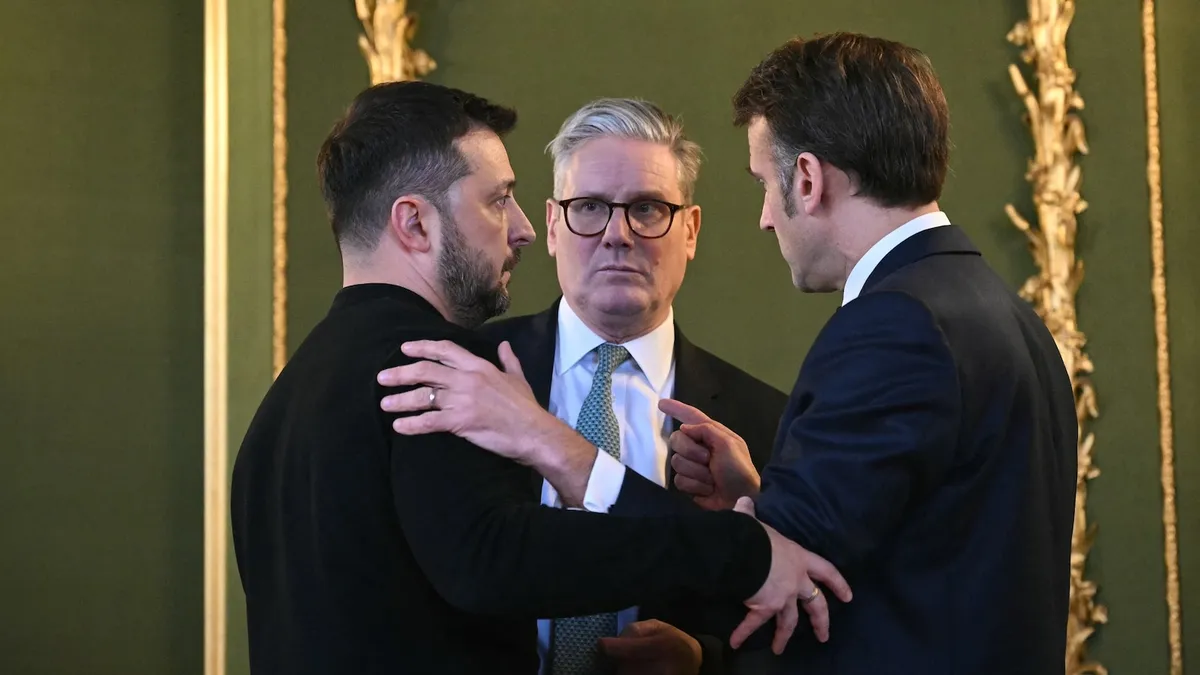
Ukrainian President Volodymyr Zelenskyy recently expressed his profound gratitude for the extensive support provided by the United States over the years. This statement comes at the conclusion of a tumultuous week of transatlantic diplomacy, which was marked by a public rift with the administration of former President Donald Trump. Zelenskyy portrayed this week’s diplomatic efforts as the start of a lengthy process that could lead to a peace agreement aimed at ending Russia’s ongoing invasion of Ukraine, which has lasted for three years.
In a video posted on the presidential website, Zelenskyy stated, "There will be many meetings and joint efforts in the coming days and weeks." He emphasized the importance of diplomacy for peace, underlining the necessity of unity among Ukraine, Europe, and the United States. This collaborative approach is seen as crucial in the quest for a lasting resolution to the conflict.
Meanwhile, the Kremlin commented on the importance of urging Zelenskyy to pursue a peace deal. Kremlin spokesperson Dmitry Peskov echoed sentiments expressed by Trump during a contentious meeting with Zelenskyy at the Oval Office. Peskov stated, "He does not want peace. Someone should make Zelenskyy want peace," reflecting Russia's longstanding narrative that blames Ukraine for its invasion and ongoing aggression.
In response to another night of Russian missile and drone strikes, Zelenskyy took to Telegram to reaffirm Ukraine's commitment to fighting for a safe and normal life. He declared, "We want this war to end. But Russia does not want it and continues its aerial terror." He stressed that those who are serious about negotiations do not deliberately target civilians with ballistic missiles.
Zelenskyy’s intense meeting with Trump and Vice President JD Vance highlighted the stark differences in perspectives regarding the war in Ukraine. Trump has repeatedly misattributed blame to Ukraine for the conflict, which has fueled concerns about U.S. foreign policy shifts that may align more closely with Russian narratives. Following this meeting, Russian officials expressed satisfaction, with Peskov noting a significant change in American foreign policy under Trump.
In a statement on Sunday, Zelenskyy acknowledged the critical role of American support, saying, "There hasn’t been a single day when we haven't felt grateful." He emphasized the need for security guarantees as essential to achieving peace. Zelenskyy attended a summit of European leaders in London where discussions about a potential peace plan were held.
During the summit, British Prime Minister Keir Starmer announced an agreement with Trump and French President Emmanuel Macron to collaborate with Ukraine in formulating a peace plan. The plan aims to continue aid to Ukraine while maintaining economic pressure on Russia. Starmer stressed that any peace agreement must ensure Ukraine’s sovereignty and security, and that Kyiv should be included in negotiations.
Starmer also mentioned that, should a peace deal be reached, Europe would continue to support Ukraine militarily to deter any future aggression from Russia. He noted that the United Kingdom is prepared to offer military support, including ground troops and air power, recognizing that not all countries can make such commitments. However, he emphasized that strong U.S. backing is essential for the success of any agreement.
Following his meetings, Zelenskyy reported increased unity and readiness for cooperation among European leaders. He stated, "Everyone is united on the main point -- for peace to be real, real security guarantees are needed." He reiterated the collective determination of Europe to outline a unified position on the negotiations, which will be presented to U.S. partners.
Zelenskyy concluded by emphasizing that achieving a robust and lasting peace agreement remains a top priority. "The right agreement on the end of the war are truly our shared priorities," he affirmed, signaling a hopeful outlook for continued diplomatic efforts in the face of adversity.
This report has been contributed to by ABC News' Patrick Reevell.